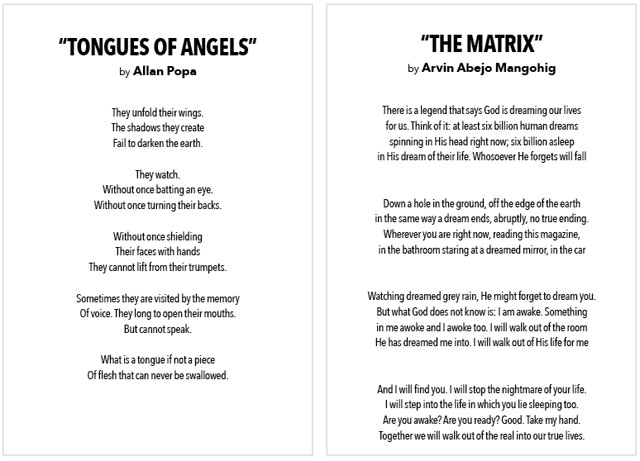This month we feature two Filipino poets who take an ambivalent view of their country’s main religion. With a little more than 90% of the Philippine population identifying as Christian in one form or another, it is a major driving force that influences all aspects of life.
“Tongues of Angels” addresses the question: How can a loving God allow suffering? Avoiding the maudlin descriptions of a less talented poet, Allan Popa conveys the suffering of the world to the reader second hand – via the reaction of the angels forced to watch. The angels exist in a metaphysical realm where God is absent and no resolution to suffering can be found. Instead of an answer we are left with the image of the tongue as “a piece of flesh that can never be swallowed”, which seems similar to having a lump in one’s throat. This ending is an emotional response to a question without an answer. But perhaps we are looking
in the wrong place. Is it in the angels’ longing to “open their mouths” and perhaps speak words of comfort that salvation can be found?

In “The Matrix”, it is poetry that offers salvation. “The poem is about poetry,” said Arvin Abejo Mangohig via email, “and how it can make you awaken in the midst of the world and your life… I was imagining a house to be walked out of, a physical place that limits consciousness instead of opening it.” Mangohig sets up poetry as a foil to an enslaving God and culture. By taking part in a postmodern collaboration, where the meaning of the poem is decided between the poet and the reader, both achieve what Nietzsche called “the highest task and proper metaphysical activity of this life”. Reading and writing poetry, therefore, liberates us momentarily from the dross and powerlessness experienced in “His dream” of everyday life.


